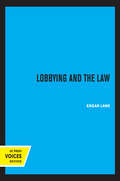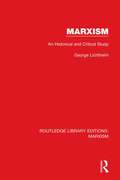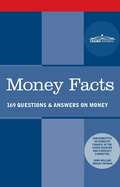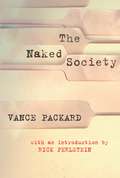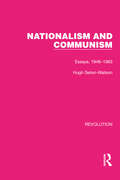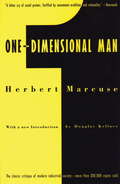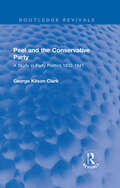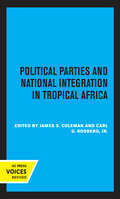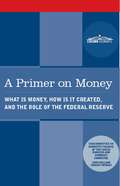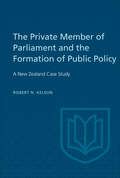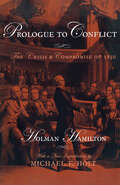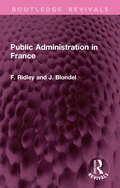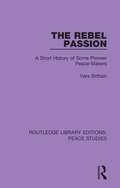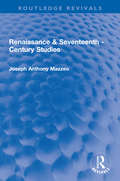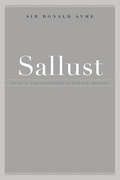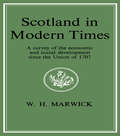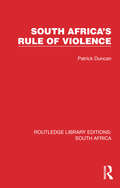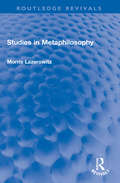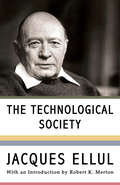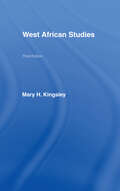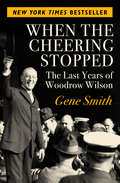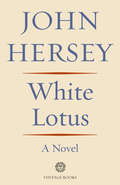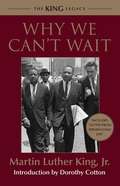- Table View
- List View
Lobbying and The Law
by Edgar LaneThis title is part of UC Press's Voices Revived program, which commemorates University of California Press’s mission to seek out and cultivate the brightest minds and give them voice, reach, and impact. Drawing on a backlist dating to 1893, Voices Revived makes high-quality, peer-reviewed scholarship accessible once again using print-on-demand technology. This title was originally published in 1964.
Marxism: An Historical and Critical Study (Routledge Library Editions: Marxism #13)
by George LichtheimThis book, first published in 1961 and revised in 1964, is both a critical study of a body of thought and an historical account of how Marxist theory arose from the context of European history in the 19th century. It traces the development of socialist thought from the French to the Russian Revolutions and attempts to show in what manner the political and intellectual problems of Central Europe between 1848 and 1948 came to dominate the theory and practice of that Marxist movement which formed the crucial link between the two revolutions. The author takes the view that Marxism is a movement and a body of doctrine which belongs essentially to the 19th century, which came to an end with the First World War and the Russian Revolution, and that its impact as a doctrine has now been absorbed.
Money Facts: 169 Questions & Answers on Money
by Subcommittee on Domestic FinanceThe meaning of money, how it was created, and how it influenced everyday life for Americans inspired Wright Patman throughout his professional life as a Congressman from 1928 to 1975, as chairman of the powerful United States House Committee on Banking and Currency from 1963 to 1975 and a life-long populist in the good sense of the word. He defended the little guy, farmers, veterans and small businessmen against big business, big chain stores, big banks and especially the Federal Reserve system. Together with his Subcommittee on Domestic Finance, Patman released in 1964 A Primer on Money explaining how the US monetary system works and indicated where it needed reform. As a supplement to that report, he released Money Facts—169 Questions and Answers on Money, which is designed to highlight in question and answer form the basic points brought out in A Primer on Money. It answers, for example, what money is: “Money is anything that people will accept in exchange for goods or services, in the belief that they may, in turn, exchange it, now or later, for other goods or services,”, but it also raises many other questions such as: - Who issues currency? - What is a central bank? - What is active monetary policy? - What is the main problem of the Federal Reserve System? Although this publication is over fifty years old, and some changes have been made to the Federal Reserve System since then, this booklet is still relevant and important to understand more about the history and meaning of money and how the Federal Reserve System plays a crucial role in the US economy. This report is interesting reading for students of monetary policy, academics, policymakers, journalists, and anyone interested to learn about the basics of money and the monetary system.
The Naked Society
by Rick Perlstein Vance PackardOriginally published in 1964, The Naked Society was the first book on the threats to privacy posed by new technologies such as modern surveillance techniques and methods for influencing human behavior. This all new edition of the book features an introduction by noted historian Rick Perlstein.
Nationalism and Communism: Essays, 1946–1963 (Routledge Library Editions: Revolution #17)
by Hugh Seton-WatsonThis book, first published in 1964, collects a number of essays united by the general theme of national and social revolution. They examine features of revolutionary movements, and, particularly, revolutionary leadership in an analysis of the social conditions and personal motives which impel men towards forming revolutionary elites.
One-Dimensional Man
by Herbert MarcuseOriginally published in 1964, One-Dimensional Man quickly became one of the most important texts in the ensuing decade of radical political change. This second edition, newly introduced by Marcuse scholar Douglas Kellner, presents Marcuse's best-selling work to another generation of readers in the context of contemporary events.From the Trade Paperback edition.
Peel and the Conservative Party: A Study in Party Politics 1832-1841 (Routledge Revivals)
by George Kitson ClarkFirst published in 1964, Peel and the Conservative Party is a major historical study that considers the problems of Peel who in 1932 was to recreate a party which had been shattered successively by Canning, Catholic Emancipation, and the Reform Bill, and, to lead a party whose interests were hopelessly divided between agriculture and industry. The author acknowledges the work of Professors Aspinall and Gash on the subject, and among other things considers the true significance of the resignation of the Duke of Wellington in 1830. This book will be an interesting read for students of history and political science.
Political Parties and National Integration in Tropical Africa
by James S. Coleman Carl G. RosbergThe essays in this book focus attention on the role of political groups in the new functioning and development of the new African societies and the political systems of which they are a part. The authors, all recognized authorities, have sought to identify and compare the manifestations of the general tendency among the new states of Tropical Africa toward the establishment and consolidation of one-party political systems, and to examine, in the light of this general trend, the different dimensions of the problem of integration. This title is part of UC Press's Voices Revived program, which commemorates University of California Press's mission to seek out and cultivate the brightest minds and give them voice, reach, and impact. Drawing on a backlist dating to 1893, Voices Revived makes high-quality, peer-reviewed scholarship accessible once again using print-on-demand technology. This title was originally published in 1964.
Power in Washington: A Critical Look at Today's Struggle to Govern in the Nation's Capital
by Douglass CaterU.S. politics from a reporter's point of view.
A Primer on Money
by Subcommittee on Domestic FinanceThe above quote was from a 1941 speech by U.S. congressman Wright Patman, a fierce critic of the Federal Reserve. A Primer on Money, released in 1964 by the Congressional Subcommittee on domestic finance, explains in Patman’s introduction “in simple, everyday language how the US monetary system works and indicates where it needs reform.” It describes specifically: - What is money? - How is money created? - The role of the Federal Reserve System - Money supply and Monetary policy - Improvements in the Money System Although this publication is over fifty years old and changes have been made to the Federal Reserve System since then, it is a testament to Patman’s insights that this report is still relevant and important to today’s discussion about the role of the Federal Reserve in the U.S. economy. This report is essential reading for students of monetary policy, academics, policymakers, journalists, and anyone interested in learning about the basics of money and the Federal Reserve.
The Private Member of Parliament and the Formation of Public Policy: A New Zealand Case Study
by Robert KelsonIn this attempt to determine the degree of power or influence possessed by the New Zealand private Member of Parliament, Robert Kelson has consulted parliamentary documents, the New Zealand press, and party documents. His study is based as well on data collected during attendance at the House and its committees, as well as party meetings, over a three-year period. He concludes with suggestions of new roles for the private Member of Parliament in the light of modern conditions, which will make a useful comparison with Canada's experience.
Prologue to Conflict: The Crisis & Compromise of 1850
by Holman HamiltonThe crisis facing the United States in 1850 was a dramatic prologue to the conflict that came a decade later. The rapid opening of western lands demanded the speedy establishment of local civil administration for these vast regions. Outraged partisans, ho
Public Administration in France (Routledge Revivals)
by F. F. Ridley J. BlondelOriginally published in 1964, this book was an important addition to the growing field of comparative government and administration. This book covers the organisation of the French cabinet, the structure and functions of government departments and of local authorities, the civil service, the police, the judiciary and public enterprise. There are also chapters on economic planning, the administration of social services and of the educational system. The book explains the spirit as well as the mechanism of the French administrative system, the principles that underly it and the wider background against which it is set
The Rebel Passion: A Short History of Some Pioneer Peace-Makers (Routledge Library Editions: Peace Studies)
by Vera BrittainOriginally published in 1964, The Rebel Passion endeavours to tell the continuous story, in terms of their ideas and personalities and the vital flame that inspired them, of a group of very different yet spiritually related Christians who sought to confront a world involved in deeper conflict than any could fully realize, with the basic essentials of peace. Individual and corporate witness, beginning even before 1914, is presented against the dark background of many countries involved directly or indirectly in war, and illustrates the international scene, dangerous and tragic yet revolutionary and apocalyptic, over the tremendous half-century through which the older generation had lived, and which shaped the lives of their juniors. In 1941 the last revised edition was issued of a factual historic record of the work of the I.F.o.R. up to twenty years ago. The present book aims at a different treatment, which instead of mainly summarizing missions, conferences and committees, seeks to interpret persons and events rather than merely describe them. It tries above all to indicate how the philosophy and example of prophetic personalities influenced their various communities, in spite of totally different official values and the consistent opposition of ‘establishments’ to minority opinions based on insight and inspiration. It suggests that the thinking of ordinary individuals with distinguished minds, without the advantage of conspicuous social labels or the opportunity to stand on political pedestals, actually operates as a leaven which changes the thought of a generation. The fact that such a result had been achieved within measurable time should have encouraged those who worked on the contemporary scene to create spiritual foundations for the labours of future man and women. This book was published to commemorate the fiftieth anniversary of the Fellowship of Reconciliation, founded at Cambridge in December, 1914, and followed by the International Fellowship in 1919.
Renaissance & Seventeenth - Century Studies (Routledge Revivals)
by Joseph Anthony MazzeoFirst published in 1964, Renaissance & Seventeenth - Century Studies contains essays which fall into two groups. The first four are concerned with problems of metaphor and style and treat two important eras in literary history when these problems underwent critical re-examination. St. Augustine marks the classical attempt to take account of "biblical poetics" while the two essays on the theory of the "metaphysical" style treat the attempt of seventeenth century critics to comprehend, at the theoretical level, the expansion of metaphysical possibilities that marked the "metaphysical" movement. The second group of essays are, in general, concerned with Machiavelli and Machiavellism and Andrew Marvell. However, they are again essentially concerned with the way in which crucial metaphors and idea-images serve as principles for organising experience both in Machiavelli’s own writings and in that of work of Marvell which reflects his influence. The final essay "Cromwell as Davidic King", weaves together Machiavellian and Augustinian strands as they are manifested in the works of a poet of wit, the "various light" of whose mind responded harmoniously to the different currents of thought and taste these essays discuss. This book will be an essential read for scholars and researchers of literature, literary history, political philosophy, and philosophy in general.
Sallust (Sather Classical Lectures #33)
by Ronald SymeWith this classic book, Sir Ronald Syme became the first historian of the twentieth century to place Sallust—whom Tacitus called the most brilliant Roman historian—in his social, political, and literary context. Scholars had considered Sallust to be a mere political hack or pamphleteer, but Syme's text makes important connections between the politics of the Republic and the literary achievement of the author to show Sallust as a historian unbiased by partisanship. In a new foreword, Ronald Mellor delivers one of the most thorough biographical essays of Sir Ronald Syme in English. He both places the book in the context of Syme's other works and details the progression of Sallustian studies since and as a result of Syme's work.
Scotland in Modern Times
by William H MarwickFirst Published in 1964. Routledge is an imprint of Taylor & Francis, an informa company.
South Africa's Rule of Violence (Routledge Library Editions: South Africa #6)
by Patrick DuncanOriginally published in 1967, South Africa’s Rule of Violence is a record of aggression and violence against the black population of South Africa during the Apartheid era. The author, who was active in the political fight to end the apartheid system, collected many of these records from a 15-year period, and many are reproduced in the book. Mainly based on press reports, and illustrated with black and white press photos, the book brings to life the tragic cruelty of the Apartheid years and compares South African racism to that in Nazi Germany.
Studies in Metaphilosophy (Routledge Revivals)
by Morris LazerowitzFirst Published in 1964, Studies in Metaphilosophy presents and develop the hypothesis about the nature of metaphysical theories. Each study is a fresh attempt to improve our understanding of what a philosophical theory is and what its supporting arguments come to. Author argues that philosophical theories are nothing more substantial than linguistic chimeras and has the important function of pointing up the need for the examination of the whole subject. The volume discusses important themes like concept analysis, systematic doubt, the method of deduction from fact, logical necessitation, the nature of philosophical analysis, the nature of value, the metaphysical concept of space, Moore and philosophical analysis, the hidden structure of philosophical theories, and the relevance of psychoanalysis to philosophy. This volume will be an essential source for scholars and researchers of philosophy, logic, and metaphysics.
The Technological Society
by Jacques EllulAs insightful and wise today as it was when originally published in 1954, Jacques Ellul's The Technological Society has become a classic in its field, laying the groundwork for all other studies of technology and society that have followed. Ellul offers a penetrating analysis of our technological civilization, showing how technology—which began innocuously enough as a servant of humankind—threatens to overthrow humanity itself in its ongoing creation of an environment that meets its own ends. No conversation about the dangers of technology and its unavoidable effects on society can begin without a careful reading of this book. "A magnificent book . . . He goes through one human activity after another and shows how it has been technicized, rendered efficient, and diminished in the process.&”—Harper's &“One of the most important books of the second half of the twentieth-century. In it, Jacques Ellul convincingly demonstrates that technology, which we continue to conceptualize as the servant of man, will overthrow everything that prevents the internal logic of its development, including humanity itself—unless we take necessary steps to move human society out of the environment that 'technique' is creating to meet its own needs.&”—The Nation &“A description of the way in which technology has become completely autonomous and is in the process of taking over the traditional values of every society without exception, subverting and suppressing these values to produce at last a monolithic world culture in which all non-technological difference and variety are mere appearance.&”—Los Angeles Free Press
West African Studies
by Mary KingsleyContains important eye-witness accounts by English traders who had many years experience in the Delta area.
What Is to Be Done? Burning Questions of Our Movement
by Vladimir Ilyich LeninA basic consideration of the conditions and problems in the formation of a vanguard, revolutionary party. Lenin wrote this political pamphlet in 1901, after he had returned to St. Petersburg from three years of Siberian exile for advocating a Marxist revolution against the Tsar, who ruled Russia with an iron hand. In the pamphlet, Lenin argued that only a disciplined party of professional revolutionaries could bring socialism to Russia. He stresses the importance of theory and a revolutionary party guided by that theory. In this, he was at odds with other political groups that advocated a democratic movement toward socialism. He argued against the so-called "Economists," who held that workers were de facto at the forefront of the Marxist movement by virtue of their struggles with their employers over wage issues. In Lenin's view, this amounted to only "trade-union consciousness," which fell far short of the theoretical political consciousness he believed was needed if socialism was to succeed. The pamphlet also calls for a shift of emphasis from local to national work on revolutionary goals, which he would facilitate through communication via an all-Russia political newspaper.
When the Cheering Stopped: The Last Years of Woodrow Wilson
by Gene SmithThe poignant true story of an American president struck by tragedy at the height of his glory. This New York Times bestseller vividly chronicles the stunning decline in Woodrow Wilson's fortunes after World War I and draws back the curtain on one of the strangest episodes in the history of the American presidency. Author Gene Smith brilliantly captures the drama and excitement of Wilson's efforts at the Paris Peace Conference to forge a lasting concord between enemies, and his remarkable coast-to-coast tour to sway national opinion in favor of the League of Nations. During this grueling jaunt across 8,000 miles in less than a month, Wilson suffered a debilitating stroke that left him an invalid and a recluse, shrouding his final years in office in shadow and mystery. In graceful and dramatic prose, Smith portrays a White House mired in secrets, with a commander in chief kept behind closed doors, unseen by anyone except his doctor and his devoted second wife, Edith Galt Wilson, a woman of strong will with less than an elementary school education who, for all intents and purposes, led the government of the most powerful nation in the world for two years. When the Cheering Stopped is a gripping true story of duty, courage, and deceit, and an unforgettable portrait of a visionary leader whose valiant struggle and tragic fall changed the course of world history.
White Lotus
by John HerseyNot too far from now, in a world very like our own, the oppressors have changed places with the oppressed. After their defeat in the Yellow War, the white people of America are thrust into a brutally altered reality. They are hunted like wild beasts and drive like cattle, transported in reeking ships and sold to their conquerors as field hands and house slaves. Robbed of their old names and their old language, treated with a mixture of cruelty and condescension by their Chinese masters, whites take on new identities and new strategies of survival. Some, like Nose, plunge into dissipation. Others, like Top Man, become imitation Yellows. And some, like White Lotus, rebel. In this mesmerizing book John Hersey creates an alternate history that casts a harsh radiance on our own. It has some of the stateliness of Exodus, along with the power of oral narratives of slavery. It has heroes and victims—and villains who turn out to be victims of another color. At once a masterpiece of storytelling and a complex novel of ideas, White Lotuscompels us to reexamine our notions of race and racism, freedom and oppression.
Why We Can't Wait
by Martin Luther King Jr.Dr. King's best-selling account of the civil rights movement in Birmingham during the spring and summer of 1963. In 1963, Birmingham, Alabama, was perhaps the most racially segregated city in the United States, but the campaign launched by Fred Shuttlesworth, Dr. Martin Luther King, Jr., and others demonstrated to the world the power of nonviolent direct action. Often applauded as King's most incisive and eloquent book,Why We Can't Wait recounts the Birmingham campaign in vivid detail, while underscoring why 1963 was such a crucial year for the civil rights movement. King examines the history of the civil rights struggle and the tasks that future generations must accomplish to bring about full equality. The book also includes the extraordinary Letter from Birmingham Jail which King wrote in April of 1963.
